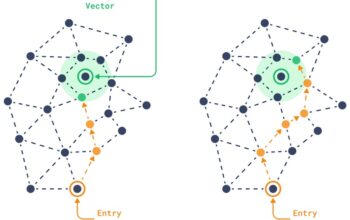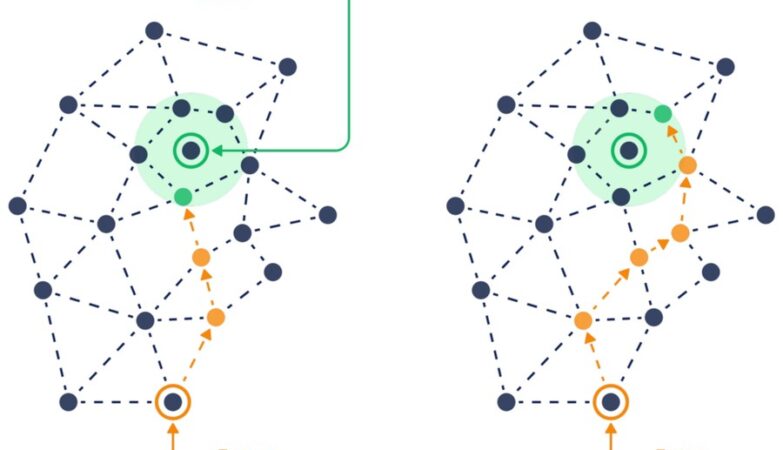Your company’s success in the data-driven world of today depends on your capacity to glean insightful information from the large volumes of data. Allow us to introduce you to business analytics, a revolutionary field that gives companies the ability to make wise decisions, pormote expansion, and get competitive advantage.
Business Analytics: What is it?
Informed decision-making and improved organizational performance are the results of methodical data exploration, interpretation, and analysis. To find patterns, trends, and links within large information, a variety of statistical and quantitative tools, data modeling, predictive analytics, and data visualization are used.
You may have a thorough grasp of your company’s operations, client behavior, industry trends, and internal procedures by utilizing business analytics. This aids in opportunity identification, strategy optimization, risk mitigation, and the efficiency and profitability of your company.
Business Analyst course help you specialize and make your CV stand out. You should enroll for such courses if you are looking for a career in any business market.
Sustainability and What it Means:
Why are we discussing sustainability? Because the natural capital that we are depleting has to be preserved. In the business world, sustainability refers to a company’s plan of action and approach to lessen the negative effects that its activities have on the environment and society in a given market. Sustainability strategies within a business are usually evaluated using environmental, social, and governance (ESG) criteria.
Business and Sustainability:
The Business Roundtable’s CEOs reinterpreted capitalism and the “statement on the Purpose of a Corporation” in 2019–2022, emphasizing that businesses should serve all stakeholders, suppliers, consumers, workers, communities (including the environment through sustainability), and investors.
This indicates that sustainability is now mandatory rather than optional and that it is becoming “Business as Usual” in many industries. Significant organizational change is occurring, and the effects are apparent. By encouraging moral behavior that has positive effects both internally and externally, and by involving suppliers, institutions, customers in reducing negative impacts and reusing or renewing resources, those who have accepted the challenge are solidifying their leadership as change agents.
A company’s sustainability commitment is now a crucial factor in determining both its value and its potential to succeed in the global economy. To completely grasp their meaning, just take a look at a few of the goals and sustainability plans of top businesses in the different industries. Along with the yearly financial reports, the sustainability results and associated reports are given today.
Formulating a Business Strategy for Sustainability:
Creating a sustainable company plan is like planting a tree. To thrive, it needs attention, endurance, and preparation. Here’s how to increase your environmental impact:
Step 1: Comprehensive Sustainability Evaluation
A sustainability evaluation entails a thorough analysis of your company’s social and economic effects in addition to its environmental effects. Businesses need to consider every aspect of their influence, ranging from the supply chains, social consequences to their carbon imprint.
Step 2: Identifying Sustainability Goals
Companies need to develop SMART goals—specific, measurable, actual, relevant, and time-bound—instead of just making broad declarations. One option for successfully lowering greenhouse gas emissions is to employ the Science Based Targets initiative (SBTi), which provides an organized strategy based on approaches that have been verified by science.
Step 3: Formulating a Complete Policy
The development of workable policies necessitates a multifaceted strategy that takes the business into account. This might entail creating waste management plans, green purchase guidelines, and sustainability education initiatives for staff members.
Step 4: Cooperation and Engagement of Stakeholders
Building relationships with staff members, clients, investors, and the community is essential to engage stakeholders. Businesses could promote a sustainable culture by holding frequent meetings, working on joint projects, and using inclusive decision-making processes.
Step 5: Extensive Monitoring and Reporting
Using reliable Key Performance Indicators (KPIs) to track success is essential. Businesses should set up routine reporting procedures to update stakeholders on their progress and be prepared to adjust their plans in light of performance information.
Examples of sustainability in business include
- Employing carbon accounting and alternative power sources to increase the effectiveness of energy management.
- Putting in infrastructure that cuts waste, conserves water, and lowers greenhouse gas emissions.
- Managing flexible and effective supply chains to support sustainable consumption, stimulate reuse, eliminate waste, and safeguard natural resources in order to strengthen the circular economy.
- Promoting resilience and risk assessment in order to facilitate sustainable development while respecting external laws and development objectives.
Advantages of Sustainability
Businesses that diligently incorporate sustainable principles into their operations are reaping significant financial rewards. Few of them are:
Edge over Competitors:
When selecting a brand, 55{a914b1e9acb01c6024b4ce88aed1d09a4e667bf7becf66b0d2e95e1a2537bf86} of customers feel that environmental sustainability is very or extremely essential. Having a reputation for being a sustainable company might help you attract customers that have a positive attitude toward businesses that practice sustainability.
Investor Communication
In 2021, four out of five individual investors intended to take action in the next twelve months regarding sustainability or social responsibility.
Adherence to Legal Obligations:
Governments will keep enlarging their regulatory frameworks and corporate SDGs. As these new regulations come into effect, stay ahead of the curve by putting sustainable solutions into place as soon as possible. You should also continuously monitor, benchmark, record, and report on ESG performance.
Extended Durability of Investments:
For most businesses, the COVID-19 epidemic has expedited the digital transformation process. You’re creating a more resilient company that is prepared for change and new possibilities if that transformation is sustainable.
Acquiring Emplyees:
Workers looking for meaningful work want to be employed by environmentally and socially conscious businesses. Gaining a reputation as a sustainable firm can help you draw in and keep the best workers for your organization.
Growth in Revenue:
Today’s change agents become tomorrow’s winners as their bottom line improves by putting into practice sustainable strategies that minimize resource use and maximize operational efficiency. Greater overall impact initiatives may initially cost more to undertake, but in the long run, the benefits will outweigh the expense.
Accelerate Your Career with Exclr Solutions’ Business Analysis Course in Mumbai! The future belongs to data-driven decision-makers. With Exclr Solutions in Mumbai, you can become one of them. Learn from industry experts, gain real-world experience, and earn a certification that can set you apart in the job market. Enroll now and take charge of your career!
Name: ExcelR- Data Science, Data Analytics, Business Analytics Course Training Mumbai
Address: 304, 3rd Floor, Pratibha Building. Three Petrol pump, Lal Bahadur Shastri Rd, opposite Manas Tower, Pakhdi, Thane West, Thane, Maharashtra 400602
Phone Number: 09108238354








